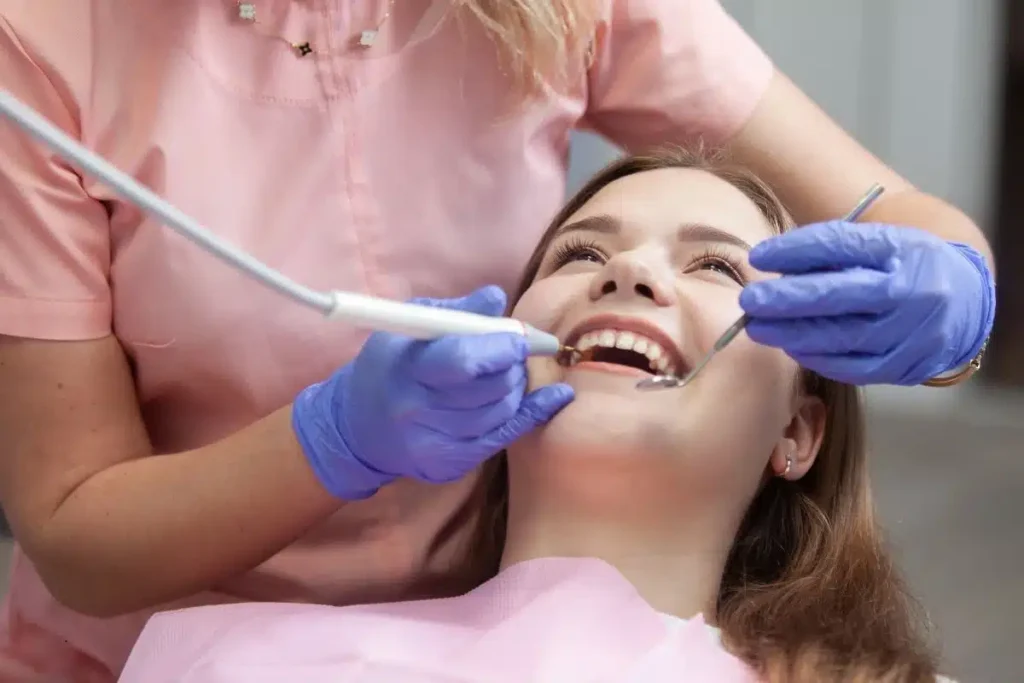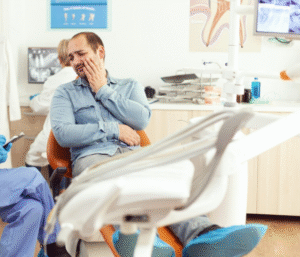Key Takeaways:
- Preventive dental care is essential for maintaining oral health and preventing future dental issues.
- Regular dental check-ups and cleanings can save you money in the long run by avoiding costly treatments.
- Good oral hygiene practices at home are a crucial part of preventive care.
- Access to dental insurance plans can make preventive care more affordable and accessible.
Importance of Preventive Dental Care
Preventive dental care is the cornerstone of a healthy mouth and a beautiful smile. It includes regular dental check-ups, professional cleanings, and routine X-rays that help identify and address potential issues before they escalate. With preventive care, you can significantly reduce the likelihood of developing severe dental problems such as cavities, gum disease, and tooth loss.
Additionally, preventive care encompasses other services like fluoride treatments and dental sealants that provide extra protection for your teeth. For those seeking accessible options, a DHMO dental plan offers essential preventive services, helping you stay on top of your dental health without financial strain. Preventive dental care enhances oral health and boosts overall well-being, as poor dental health can affect other parts of the body, like the heart and respiratory system.
Regular Dental Check-Ups and Cleanings
Regular dental check-ups are fundamental to maintaining good oral health. These check-ups allow dentists to spot early signs of issues such as cavities or gum disease and provide timely interventions. Routine cleanings are also crucial because they remove tartar, a hardened form of plaque that cannot be eliminated through regular brushing and flossing alone.
These visits should occur at least twice yearly to manage oral health effectively. During these visits, your dentist can also offer personalized advice on improving your daily dental care routine, ensuring you do everything possible to maintain a healthy mouth. Frequently visiting your dentist informs you about the latest dental care and hygiene advancements, equipping you with the knowledge needed to make better health choices.
Cost Savings with Preventive Care
While the cost of regular dental visits might seem like a burden, investing in preventive care can lead to substantial long-term savings. Treating advanced dental issues is typically much more expensive than preventing them. For example, filling a cavity is considerably cheaper than undergoing a root canal or getting a crown. Additionally, by preventing severe dental problems, you can avoid the considerable discomfort and inconvenience associated with extensive treatments.
Therefore, allocating resources to preventive care is a financially savvy decision that also promotes better overall health and well-being. By addressing minor issues early through preventive care, you avoid the significant health impacts of untreated dental problems, such as infections that can affect other body parts.
Effective Oral Hygiene Practices
Good oral hygiene practices at home are as critical as professional dental care. Brushing your teeth twice daily with fluoride toothpaste helps remove plaque and prevent cavities. Flossing daily is essential for cleaning between the teeth and under the gumline, where toothbrushes can’t reach. An antimicrobial mouthwash can reduce the number of bacteria in your mouth, further protecting against plaque buildup and gum disease. Replacing your toothbrush every three to four months or sooner if the bristles become frayed is also essential. Teaching these habits to children early ensures they grow up with a strong foundation in oral hygiene, promoting lifelong health. Establishing a consistent oral hygiene routine also helps minimize persistent dental issues, such as bad breath and tooth decay, ensuring your mouth stays healthy and fresh.
The Role of Nutrition in Oral Health
Your diet plays a significant role in maintaining dental health. A balanced diet rich in essential vitamins and minerals supports the integrity of your teeth and gums. Foods high in sugar and acidity can lead to tooth decay and should be consumed in moderation. Staying hydrated is also crucial as it helps maintain a healthy flow of saliva, which naturally protects the mouth against harmful bacteria. Including dairy products, leafy greens, and nuts in your diet can contribute to stronger teeth and gums due to their high calcium and phosphorus content.
Awareness of the relationship between diet and dental health allows individuals to make informed choices that benefit their oral and overall health. Proper nutrition supports oral and overall bodily health, reducing the risk of systemic conditions aggravated by poor dental hygiene.
Access to Dental Insurance Plans
A robust dental insurance plan can make preventive care more accessible and affordable. Many insurance plans cover routine check-ups and cleanings, encouraging individuals to maintain regular dental visits. Data reveals that people with dental insurance are more likely to visit the dentist annually than those without coverage.
Dental plans like the DHMO dental plan ensure that preventive services are within everyone’s reach, promoting better oral health and minimizing the need for costly treatments. Moreover, dental insurance plans often offer educational resources and guidance, empowering policyholders with the knowledge to manage their oral health better.
Oral Health Education and Community Programs
Education and public awareness about dental health are crucial for fostering good oral care habits. Schools, community centers, and workplaces can offer programs that teach people about the importance of dental care and practical techniques for maintaining it.
These initiatives can lead to a more informed public prioritizing their oral health. Programs providing free or low-cost dental screenings and treatments are precious in underserved communities. Improving access to such resources, these programs help ensure that everyone, regardless of economic status, can benefit from preventive dental care.
Public health campaigns and community events emphasizing dental hygiene can also bridge knowledge gaps, ensuring that everyone, especially children and older people, receives the correct information and care.
Future Innovations in Preventive Care
The field of dentistry is continuously evolving with new technologies and innovative methods for preventive care. Dental sealants, for example, offer a protective barrier against decay for vulnerable teeth. Fluoride treatments strengthen tooth enamel, making it more resistant to decay. Advanced diagnostic tools, including digital X-rays and AI-driven diagnostic tools, enhance early detection and intervention. Staying updated on these advancements allows you to take full advantage of the latest preventive care, ensuring your oral health is managed with the most effective techniques and technologies. These innovations improve the efficiency and effectiveness of dental care and make preventive measures more accessible and comfortable for patients of all ages. Understanding and embracing these futuristic dental care methods can help you avoid dental issues and secure a healthier, brighter smile for years.





